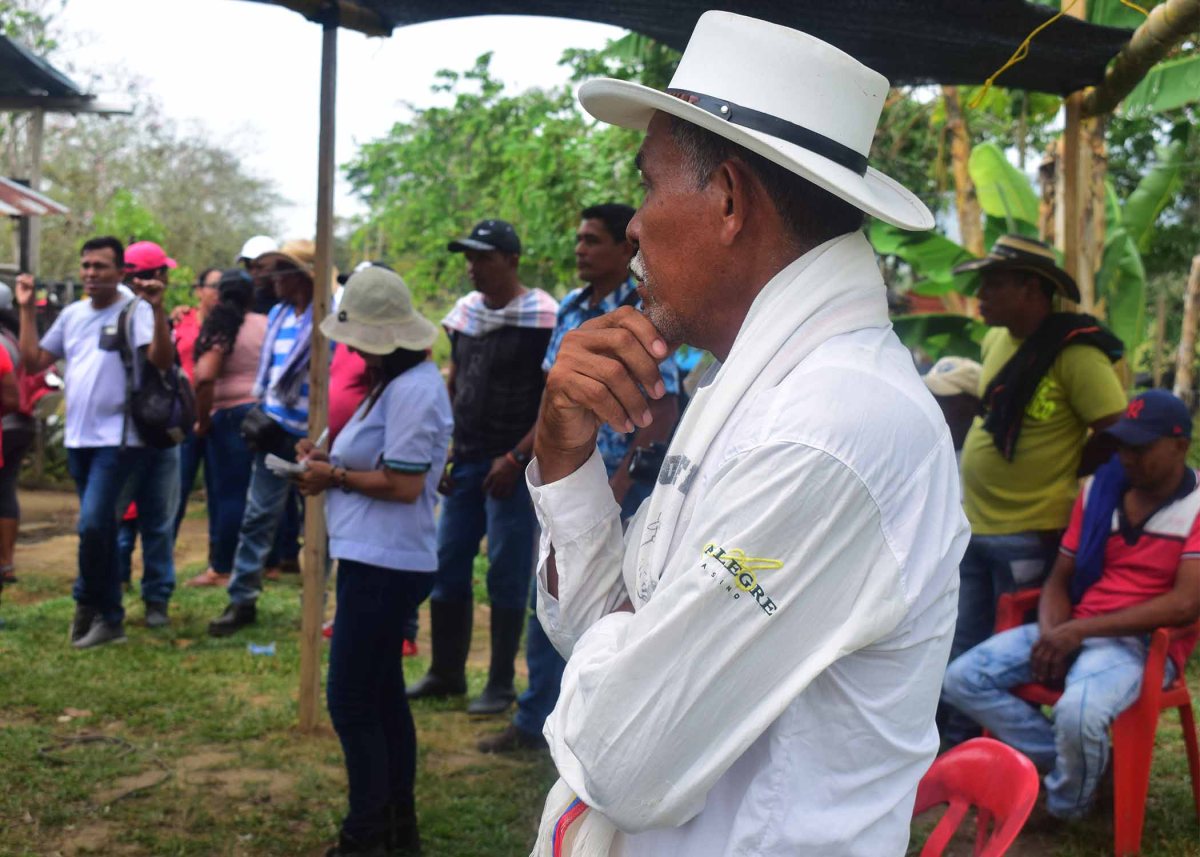Social Organizations denounce limitations on participation in Territorial Focused Development Plans (PDET) in Colombia

Territorial Focused Development Plans – PDET, in Spanish, are designed by the Agreement as participatory territorial planning instrument to implement as a priority the components of Integral Rural Reform – RRI. There has been progress in the design of Regional Transformation Action Plans – PATR in each of the 16 PDET sub-regions, yet social organizations have denounced severe limitations on participation.
For the design phase of the PDETs, a wide participation exercise was developed: nearly 220,000 people influenced it. However, once the construction processes were completed, the communities were neither summoned nor heard. Thus, in this case, this exclusion from the process led organizations in the Alto Patía – North Cauca sub-regions to establish a regional observation group to monitor the implementation of the initiatives.
Likewise, it is pointed out that the implementation of these programs has been reduced to the construction of infrastructure, works whose prioritization has not been approved by the communities. Social leaders reported that “PDET is reduced to just constructions, in bridges built without community participation, in infrastructure as a shopping list. They have nothing to do with the regional transformation of territories and do not recognize the historical abandonment of the state in the regions1.
In 2020, due to mandatory quarantine measures to mitigate the effects of the pandemic, the government decided to implement virtual meetings to continue with the implementation of PDETs. Within the framework of these sessions, it was decided to institutionalize the “impulse tables” for each of the 8 pillars of the PDET by sub-region, under which the work plans for 2021 were defined, being their objective to make monitoring of its implementation. However, there is no information on the participation of rural communities and their capacity to impact in these spaces.
It has been reported that Duque’s “Peace with legality” policy claims to ignore spaces for community participation and to articulate PDETs with military strategies of territorial control such as Strategic Zones of Integral Intervention – ZEII, in Spanish or ” Futuro zones”.
The objective with the Zonas futuro is to promote a centralized security policy ignoring a territorial approach. This is a new logic that aims to state intervention characterized by militarism, the strengthening of the army’s presence in regions where armed confrontation persists, illicit cultivation and a weak institutional presence.
In 2020, social organizations submitted a tutelage action to prevent Zonas futuro from being implemented in PDET territories, which was rejected by the Council of State, a corporation arguing that the implementation of Zonas futuro should be carried out without delay, harmoniously with the resolutions established by the agreement for the PDETs.
In relation to the situation described above, the government of Duque has created an instrument called the Single Road Map – HRU in Spanish, in order to “articulate” all the planning instruments being executed within the framework of the implementation of the Agreement. Today, the HRUs of Catatumbo, Bolivar-Sur and Cordoba-Sur (in which instances of social participation have not been identified) have been approved. In the remaining 13 PDET sub-regions, the process of constructing the said instruments continues, the government has not set a deadline for the HRUs.
The FARC component of the Implementation Monitoring Component reported that HRUs are not an instrument providing guidance for the strategic implementation of initiatives prioritized by communities. Both this instrument and the impulse tables warn of the limitations on the terms of participation and the incidental capacity of organizations in the implementation of prioritized initiatives2.
In terms of funding, the main sources of PDET works are the public resources of municipalities, the national government, international cooperation and private companies. Through the “buildings for taxes” mechanism, private companies can fund works in order to partially pay income tax in the areas most affected by the armed conflict – ZOMAC, in Spanish, within which the PDET municipalities are located.
Point 1 of the agreement recognizes that the wide participation of the communities is a guarantee for the effectiveness and the good development of the RRI, because it is convened that the creation of spaces where the participation and impact of communities in the planning, execution, and monitoring of plans is ensured. Despite this, the projects financed by means of “buildings against taxes” are executed exclusively by companies which do not contemplate mechanisms of participation and impact to the populations.
It is important to note that the implementation of RRI must revolve around the 8 pillars or thematic axes: i) social regulation of property, ii) infrastructure and land reorganization, iii) health, iv) education, v) housing and drinking water, vi) economic reactivation, vii) right to food, viii) reconciliation and cohabitation. Despite this, most of the projects of the “buildings against taxes” program relate to the construction and development of tertiary roads and to the construction of energy, water and sewage infrastructure, which implies an imbalance among the pillars and a more integral vision of territorial development is put aside3.
The PDETs, recently implemented by the Duque government, are a deformity of the PDETs conceived by the Peace Accord which recognizes social and community participation as a fundamental element of territorial implementation and transformation. Communities report frustration at not being considered during the implementation of PDETs and having programs replaced by military intervention strategies like Zonas futuro.
1 El Espectador. (November 24, 2020) “Los PDET están divorciados del Acuerdo de Paz”: los reclamos de las comunidades. Available at: https://www.elespectador.com/colombia2020/pais/los-pdet-estan-divorciados-del-acuerdo-de-paz-los-reclamos-de-las-comunidades/
2 Centro de Pensamiento y diálogo político CEPDIPO (2021) Revista a la implementación del Acuerdo de Paz con las FARC EP.
3 Secretaría Técnica del Componente Internacional de Verificación CINEP/PPP-CERAC (2021) Octavo Informe de verificación de la implementación del Acuerdo Final de Paz en Colombia. Available at: https://www.cinep.org.co/Home2/component/k2/864-octavo-informe-de-verificacion-de-la-implementacion-del-acuerdo-final-de-paz-en-colombia.html
